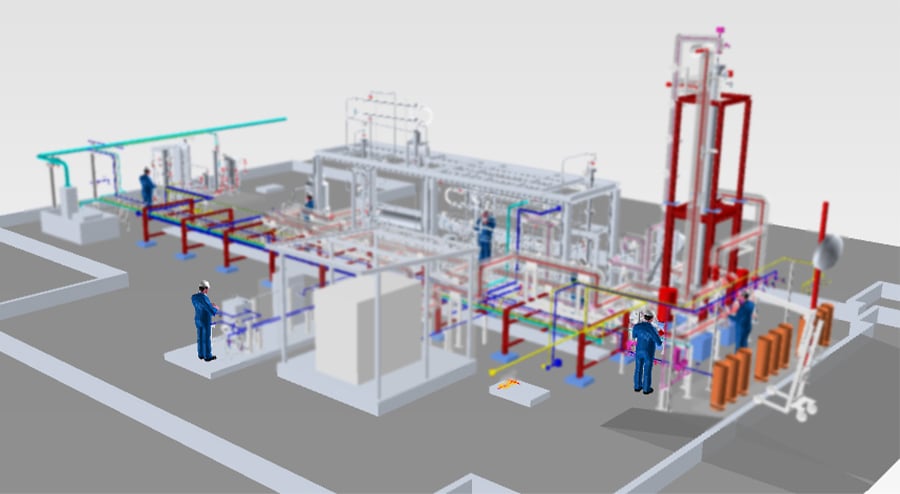Foreigners working in China now benefit from clearer legal recognition under Judicial Interpretation II. The Supreme People’s Court expands the conditions under which foreign nationals can be confirmed as employees, including those with permanent residency, valid work permits, or other lawful procedures. It also affirms the role of representative offices in labor disputes, strengthening legal accountability. (Also see our series article: China’s New Judicial Interpretation II on Labor Disputes: Key Themes at a Glance)
On August 1, 2025, China’s Supreme People’s Court (SPC) released the long-awaited Judicial Interpretation II on the Application of Law in Labor Dispute Cases (Fa Shi [2025] No. 12, hereinafter “Judicial Interpretation II on Labor Disputes” or “Judicial Interpretation II”), along with a set of illustrative cases. Both came into effect on September 1, 2025. These developments mark a significant update to labor adjudication standards, especially for foreign nationals working in China.
Of particular relevance to foreign-invested enterprises (FIEs), Article 4 of Judicial Interpretation II sets out clearer criteria for recognizing employment relationships involving foreign nationals. This is the SPC’s latest response to legal ambiguities that have emerged since the partial invalidation of Judicial Interpretation I in 2021. The new rules aim to unify judicial practice and provide more predictable outcomes in labor disputes involving expatriates.
Explore vital economic, geographic, and regulatory insights for business investors, managers, or expats to navigate China’s business landscape. Our Online Business Guides offer explainer articles, news, useful tools, and videos from on-the-ground advisors who contribute to the Doing Business in China knowledge.
Start exploring
Judicial confirmation of employment relationships for foreign nationals in China
Article 4 of Judicial Interpretation II explicitly lists three qualifying scenarios and introduces a catch-all clause, which provides courts with clearer criteria and greater flexibility in adjudicating labor disputes involving foreign employees.
Article 4 of Judicial Interpretation II
Where a foreign national establishes an employment relationship with an employer within the territory of the People’s Republic of China, and any of the following circumstances apply, the people’s court shall, in accordance with the law, uphold the foreign national’s request to confirm the existence of a labor relationship with the employer:
- The foreign national has obtained permanent residence status;
- The foreign national has obtained a work permit and is lawfully residing or staying in China; and
- The foreign national has gone through relevant procedures in accordance with applicable national regulations.
Scenario 1: Obtaining permanent residency
Foreign nationals who have obtained permanent residency in China, formally recognized through the Foreigner’s Permanent Residence Permit, are entitled to employment rights that closely mirror those of Chinese citizens. According to the Measures on the Enjoyment of Relevant Benefits by Foreigners with Permanent Residency in China, holders of this permit are exempt from the requirement to obtain a separate employment certificate. They may also be prioritized for other talent-related documentation, such as the Foreign Expert Certificate or local talent residence permits. This legal status grants foreign residents the right to work in China without additional administrative hurdles.
Consequently, the SPC’s inclusion of permanent residency as a qualifying condition under Article 4 of Judicial Interpretation II is not a new entitlement, but rather a formal judicial acknowledgment of existing legal norms. It provides courts with a clear basis to support the recognition of labor relationships involving permanent residents, reinforcing consistency in adjudication and reducing ambiguity in cross-border employment disputes.
Scenario 2: Obtained a work permit and legally residing in China
Obtaining a work permit and legally residing in China refers to a foreign national who has followed the official procedures to both work and live in China in compliance with national laws. This typically includes:
- Obtaining a Notification Letter of Foreigner’s Work Permit (《外国人工作许可通知》) before entering China;
- Entering China on a Z visa or R visa, which corresponds to the intended purpose of stay—namely, employment;
- Registering accommodation with the local public security bureau within 24 hours of arrival (if not staying in a hotel);
- Applying for a Foreigner’s Work Permit (《外国人工作许可证》) within 15 days of entry; and
- Obtaining a residence permit from the Exit-Entry Administration of the Public Security Bureau within 30 days of entry, which serves as the legal basis for residence in China.
Together, these steps establish both the right to work and the legal status to reside in China.
Notably, certain categories of foreign talent may be exempt from obtaining the Notification Letter and Work Permit. These include individuals holding a Foreign Expert Certificate, a Permit for Offshore Petroleum Operations, or a Temporary Commercial Performance Permit. Such exemptions are recognized under existing regulations and reflect the flexibility built into China’s foreign employment system.
Judicial Interpretation I vs. Judicial Interpretation II
Under Judicial Interpretation I, the SPC adopted a narrow stance on the recognition of employment relationships involving foreign nationals. Article 33 explicitly stated that if a foreigner or stateless person had not obtained the required employment documentation, courts would not support claims of a labor relationship, even if a contract had been signed. The only exception was for individuals who held both a Foreign Expert Certificate and a Foreigner’s Work Permit, reflecting a limited and highly specific compliance pathway.
This rigid framework excluded many foreign professionals working in China under legitimate but alternative arrangements, such as those under newer talent schemes or bilateral agreements. It also created uncertainty for employers, particularly foreign-invested enterprises (FIEs), navigating China’s evolving regulatory landscape.
Judicial Interpretation II addresses these limitations by significantly broadening the scope of judicial recognition. Article 4 no longer restricts recognition to holders of the Foreign Expert Certificate. Instead, it supports labor relationship confirmation for any foreign national who has obtained a valid work permit and is legally residing in China. This shift reflects a more inclusive and realistic understanding of foreign employment in China and aligns judicial practice with administrative reforms introduced since 2017.
For HR professionals and legal teams, this expansion provides clearer compliance benchmarks and reduces the risk of disputes arising from technical documentation gaps. It also signals the SPC’s intent to harmonize labor adjudication with China’s broader talent attraction and immigration policies.
Scenario 3: Completing other procedures in accordance with national regulations
The third scenario under Article 4 introduces a flexible clause that accommodates foreign nationals who may not fall under the standard employment categories but have nonetheless followed lawful procedures to work in China. This provision acknowledges that, in addition to permanent residency and conventional work permits, there are special employment types governed by specific national regulations.
This catch-all clause serves as a legal safety net, allowing courts to recognize labor relationships in cases where foreign nationals have complied with alternative but legitimate employment procedures. It reflects the SPC’s intent to adapt to the evolving landscape of foreign employment in China, where new talent programs, bilateral arrangements, and industry-specific permits are increasingly common.
For employers, especially FIEs, this provision offers greater clarity and flexibility. It ensures that lawful employment, regardless of the specific permit type, can be judicially recognized, provided the foreign national has followed the relevant national procedures.
Judicial support is not automatic
While Judicial Interpretation II expands the scenarios under which courts may support the recognition of employment relationships involving foreign nationals, it’s important to note that such support is not automatic. Article 4 uses the phrase “the people’s court may support in accordance with the law”, rather than “shall support”, indicating that judicial confirmation is discretionary and subject to further evaluation.
This means that even if a foreign national meets one of the listed conditions, such as holding permanent residency or a valid work permit, the court will still assess the substantive elements of the employment relationship. These include the existence of a signed contract, the nature of the work performed, the degree of control and supervision by the employer, and other indicators of a genuine labor relationship.
For HR professionals and legal teams, this highlights the importance of maintaining clear documentation and ensuring that employment arrangements with foreign nationals comply with both procedural and substantive legal standards. Courts will take a holistic view, and compliance with administrative requirements alone may not suffice if the underlying employment facts are unclear or inconsistent.
Representative offices can be parties to labor disputes
Article 5 of Judicial Interpretation II
A duly established representative office of a foreign enterprise may serve as a party in labor dispute cases. If a party applies to add the foreign enterprise to the litigation, the people’s court shall support the application in accordance with the law.
Article 5 of Judicial Interpretation II introduces another clarification: a duly registered representative office (RO) of a foreign enterprise in China may now be named as a party in labor dispute proceedings. This marks a significant shift from prior judicial practice, where representative offices, due to their lack of legal personhood and employer qualifications, were often excluded from direct litigation and could only participate indirectly through labor dispatch agencies.
Under China’s legal framework, representative offices are non-profit liaison entities established by foreign companies to conduct business-related activities such as market research, coordination, and promotion. They are not permitted to engage in profit-making activities or directly hire employees. Instead, staffing must be arranged through authorized third-party labor dispatch agencies, which formally sign employment contracts with the workers.
Despite these structural limitations, Judicial Interpretation II acknowledges the practical reality that representative offices often function as the de facto employer in daily operations. By affirming their eligibility to be named as parties in labor disputes, the SPC strengthens legal accountability and provides greater protection for employees working under such arrangements.
Moreover, the interpretation allows courts to support applications to add the foreign parent company to the litigation, especially in cases where the representative office lacks independent assets or has been dissolved. This provision reflects a broader trend toward tightening cross-border labor compliance and preventing foreign enterprises from evading liability through corporate structuring.
For FIEs operating representative offices in China, this development underscores the need for robust HR compliance. Even without formal employer status, representative offices must ensure that labor dispatch arrangements, workplace management, and employee rights are handled in full accordance with Chinese labor laws. Failure to do so may expose both the RO and its parent company to legal risk and reputational damage.
Key takeaway
Judicial Interpretation II marks a significant step forward in clarifying and expanding the legal framework for foreign nationals working in China. By broadening the scenarios under which employment relationships can be judicially recognized and affirming the role of representative offices in labor disputes, the SPC provides FIEs with clearer compliance pathways and stronger legal safeguards. HR teams must ensure that employment arrangements meet both procedural and substantive legal standards to mitigate risks and uphold labor rights.
About Us
China Briefing is one of five regional Asia Briefing publications. It is supported by Dezan Shira & Associates, a pan-Asia, multi-disciplinary professional services firm that assists foreign investors throughout Asia, including through offices in Beijing, Tianjin, Dalian, Qingdao, Shanghai, Hangzhou, Ningbo, Suzhou, Guangzhou, Haikou, Zhongshan, Shenzhen, and Hong Kong in China. Dezan Shira & Associates also maintains offices or has alliance partners assisting foreign investors in Vietnam, Indonesia, Singapore, India, Malaysia, Mongolia, Dubai (UAE), Japan, South Korea, Nepal, The Philippines, Sri Lanka, Thailand, Italy, Germany, Bangladesh, Australia, United States, and United Kingdom and Ireland.
For a complimentary subscription to China Briefing’s content products, please click here. For support with establishing a business in China or for assistance in analyzing and entering markets, please contact the firm at china@dezshira.com or visit our website at www.dezshira.com.









